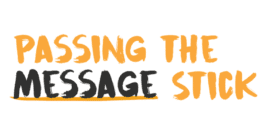Vulnerable renters swelter through summer

3 February 2022 at 8:17 am
Community advocates say as summers across the country get hotter and hotter, people living in rental properties must have ways to cool their homes
With Melbourne temperatures soaring into the high 30s last week, many across the city shut themselves away at home to keep cool. But for people living in rentals without sufficient cooling, this wasn’t an option.
Despite changes to Victorian rental laws last year including landlords being required to provide a fixed heater in “good working order” in the living area of any property, the same rule does not apply for cooling systems.
And for renters who are disadvantaged, hot days and heat waves can lead to a deadly end.
More than just air conditioning
Community groups such as the Victorian Council of Social Service (VCOSS) have long-campaigned for fairer rental rules, and said that with climate change causing hotter and deadlier summers, fixing the issue of cooling in rentals needs to be a top priority for the government.
Emma King, VCOSS CEO, told Pro Bono News that not everyone experienced the heat equally, and people in rentals and social housing were more likely to suffer.
“Extreme heat kills more Australians than any other form of natural disaster, and people experiencing disadvantage are hit the hardest,” King said.
“If you’re on a low-income, living in a shoddy old house or have a disability or mobility challenge, you can’t escape the heat as easily as others.”
But she said the problem wasn’t as easy to fix as simply installing an air conditioner, with the cost of running such an appliance quickly able to spiral out of control for somebody on a tight income.
While she said that it was positive there were subsidies to make air-conditioning more affordable for low-income Victorians, as well as incentives for rooftop solar on rentals, these programs needed to be expanded.
“These programs should be beefed up and expanded to benefit even more people,” she said.
“The laws governing the minimum standards for rental properties in Victoria should also be updated, to make insulation and air conditioning mandatory.
“It’s simply not good enough that people are boiling in their homes, developing heatstroke, dehydrating and sometimes even dying.”
Pandemic throws spanner in the works
And while people from low-income households would traditionally go to their public library, shopping centre or a local community organisation for respite on hot days, the pandemic has made doing so much harder.
“Going to public places for respite hasn’t been possible during recent lockdowns, and people now fear attending these settings and catching COVID,” King said.
She said that as well as making homes more liveable, the state government needed to work with the community sector to create more cool spaces where people could escape the heat.
“We need to make homes more liveable, make power more affordable and provide more safe community spaces for people to cool off during heatwaves,” she said.







